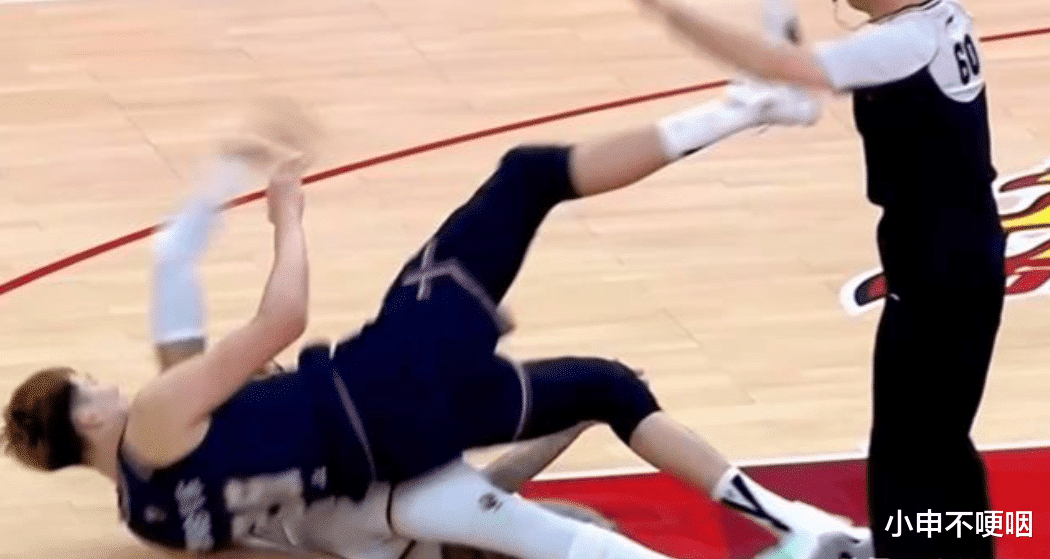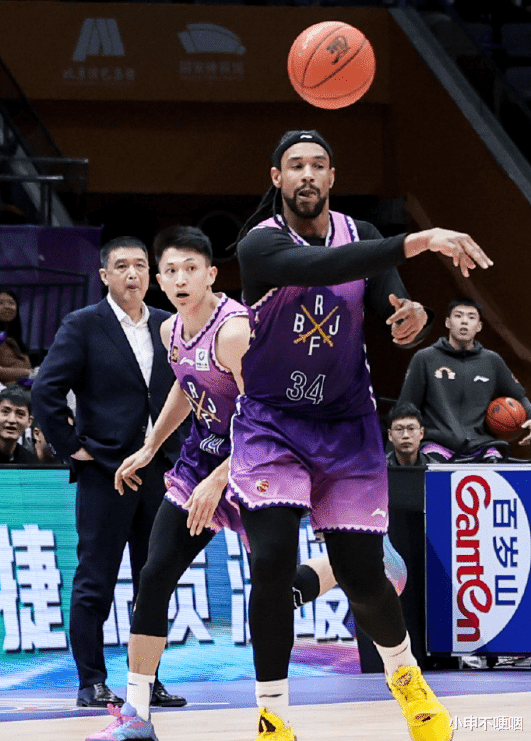Does a victory truly prove that one team is stronger than the other? In the match between Liaoning and Beikong men's basketball teams, Liaoning seemed to have defended their home court with a 104-101 victory. However, issues with refereeing, the absence of Zhang Zhenlin, and the underwhelming performance of supporting players revealed several concerning situations. On the other hand, Beikong's resilience turned the game from "no suspense" to "full of suspense." Is this a battle of strength or fate? Perhaps, the answer is not straightforward.
Have you ever watched a game where the players pour sweat and fight to the extreme, yet the referee's decisions seem to be the main attraction? The matchup between Liaoning and Beikong was just like that. Beikong's foreign player Salinge stood on the free-throw line 23 times, more than Liaoning's entire team. This statistic makes people frown, making them wonder if the protagonist of the game is the two teams' players or the referee's whistle?

Of course, the referees did not intend to favor anyone, but this free-throw disparity indeed made the game "complicated."
It must be acknowledged that Beikong's bold and aggressive style did create more opportunities to attack the basket, and Liaoning's frequent fouls due to defensive mispositioning are also facts. However, when the game is filled with such controversies, any dramatic scene can easily put the referees in the limelight. Fans may all have the same question—Is such a standard reasonable?

Interestingly, this situation seems not to be accidental. Liaoning has already felt "passive" due to refereeing issues more than once this season. In the previous game against Sichuan, the opponent's foreign player Samna also took 23 free-throws.
Such a detail repeats so astonishingly, making people think more. Perhaps, Liaoning needs to find ways to adapt to this refereeing standard; otherwise, this "passive" situation might continue in the future.

If I were to describe Ferg's performance in this game with one sentence, it would be "a lone hero who single-handedly salvaged the situation." Throughout the game, he scored 41 points. You can imagine the scene: the opponents closing in, the score being gradually eroded, and Ferg repeatedly using accurate shooting and breakthroughs to tear through Beikong's defense, pulling Liaoning back from the brink.
If you were a spectator at the scene that night, you would not find it difficult to notice that Liaoning fans' screams almost synchronized with each of Ferg's goals.

Whether it was a crucial three-pointer or a drive into the paint causing damage, every point he scored brought relief. Without a doubt, Liaoning's勉强 victory in this game was largely due to Ferg's efforts.
However, the problem lies here—Is Liaoning "over-reliant" on Ferg? Basketball is a five-person sport, and relying on one person won't get you far. Although Ferg performed outstandingly, the scoring status of Liaoning's other players throughout the game, especially their outside shooting, was quite worrying. Zhao Jiwei shot 3 out of 10 from beyond the arc, while Li Xiaoxu and Fu Hao combined for 0 out of 4. Such an unstable performance could have seen the score widened if they faced a stronger opponent.

Liaoning needs a more balanced offensive system rather than expecting Ferg to transform into a superhero to save the team in every game. Otherwise, how long can Ferg sustain under prolonged high-intensity operation? This is a question that the coach and the team must consider.
Although they ultimately lost the game, Beikong's performance was truly eye-catching. The expected "complete domination" did not occur; instead, Beikong dragged the game's suspense to the end after trailing by 14 points.

Beikong's comeback was inseparable from Salinge's efforts. Although this foreign player had an absurd number of free-throw attempts, if you carefully observed the game, you would find that he was desperately "looking for confrontation."
Time and again, he hard-charged Liaoning's defenders towards the paint, then earned free-throw opportunities, demonstrating his personal ability. The entire Beikong team was also constantly seeking opportunities, whether it was small combinations on the offensive end or active scrambling on defense, showing their tenacity.

A team's strength is not only judged by the score but also by its temperament. Beikong did not collapse when trailing in points but adjusted and chased scores bit by bit. Although they lost, their displayed spirit is commendable. This team, never considered a championship contender, played with attitude in this game.
However, a significant issue was exposed on Liaoning's side: the absence of Zhang Zhenlin. Due to injury, Zhang Zhenlin could not participate in the game, directly causing Liaoning's frontcourt to lose an important explosive point and impact power. His role on the court is not only scoring but also the balance point of the entire lineup.

His absence gave other players more opportunities to perform, unfortunately, these players seemed unable to step up. Whether it was positioning on the offensive end or coverage on the defensive end, they did not fully make up for Zhang Zhenlin's absence. A healthy Zhang Zhenlin might not have changed the controversy of this game, but he would certainly have allowed Liaoning to play more calmly.
Judging from this game, Liaoning indeed has many problems that need to be solved. The distribution of scoring points, defensive stability, adapting to the refereeing standards... These are not trivial matters. More importantly, the team needs a deeper rotation to face potential tough battles.

As for Beikong, although this loss did not bring victory, they showed fans endless possibilities. This spirit of not giving up easily is what a team cannot do without. After the game, Salinge's expression might have been somewhat regretful, but he could leave with his head held high because Beikong's approach to victory proves that they are a team worthy of respect.
In the end, Liaoning's victory gives a sense of "侥幸," but the game results do not lie; a win is a win. However, the various hidden concerns behind the game require Liaoning to study and resolve them more calmly; otherwise, can such victories really last until the end?